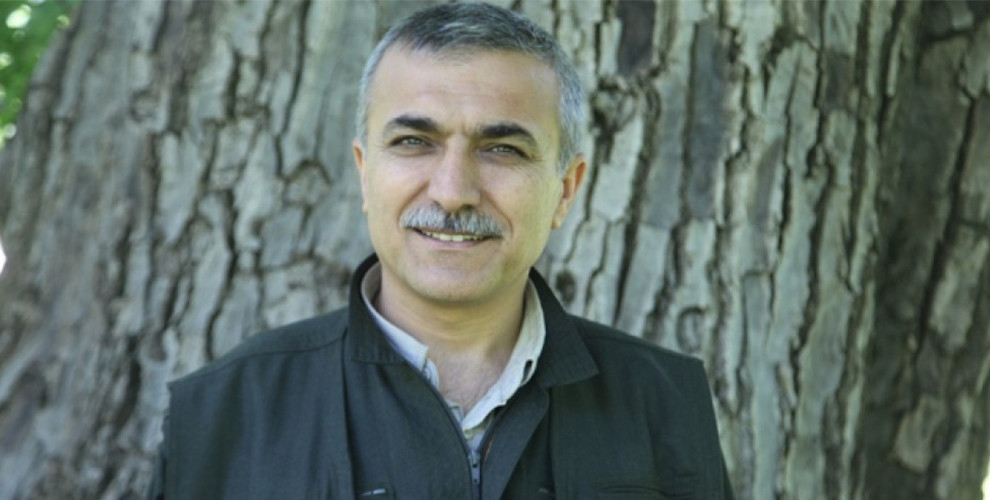KCK’s Xerib: Iraq must stand up for its independence
Diyar Xerib, a senior member of the KCK, warns that the problems in Iraq will worsen if there is no profound change in the mentality of politicians.
Diyar Xerib, a senior member of the KCK, warns that the problems in Iraq will worsen if there is no profound change in the mentality of politicians.

Diyar Xerib, a member of the Kurdistan Communities Union (KCK) General Presidency Council, spoke to RojNews on the situation in Iraq and outlined the reasons why Iraq is not resting despite ISIS defeat.
"As KCK, we do not think that the problem of Iraq is related to ISIS alone. ISIS is the result of all the problems in Iraq. And it's not just about the problems of Iraq, the ISIS is also an expression of the problems of Syria and the Middle East as a whole. Since the ISIS is a consequence and not a cause, Iraq does not come to rest with the victory over the ISIS. The most important problem of Iraq is the lack of democratic consciousness. It used to be said that "Saddam Hussein is the problem of Iraq, if Saddam leaves, the problems will be resolved". Saddam Hussein has not been in power since 2003. But everyone can see that in 2014 the ISIS surfaced. Eleven years have passed since the end of Saddam Hussein, but the problems are still not resolved.
Saddam Hussein was not the only problem of Iraq. In Iraq, the Arab, Kurdish, Shiite and Sunni components of society have a strong power. In the relationship between these components, the understanding of democracy is hardly pronounced. Overall, the awareness of democracy among leaders of Iraq's political structures is very weak. This leads to a deepening of the problems. Since there has been no fundamental change in the attitude of politicians and in society, the problems deepen even further. In order to avoid the creation of a new ISIS, politics must democratize.”
"Shiite movements can bring about democratic change"
Asked about the process of forming a government in Iraq and the problems between PUK and PDK, Xerib remarked that this crisis is also related with the Iraqi politics. He continued: “The democratic awareness is weak. Problems are not resolved because Shia, Sunni, Kurdish and Arab populations do not feel as a part of Iraq. Due to the weak sense of belonging, each party relies on outside. This causes an intervention by the Saudi Arabia, the US, Iran and Turkey in Iraq. Each party uses these countries for its own benefit. There is a problem in Iraq anyway, and with the interference of outside forces the problems are increasing and no solutions are achieved. There are many conflicts among Shiite movements. Two major causes of this are the lack of understanding of democratic politics and the intervention of outside forces.
Leaders of the Shiite movements must recognize this truth and overcome their problems. Iraq has been a center of the Shiite community in its history. It can now become a democratic Shiite center again. The Shiites have always been open to change. If the political leaders agree on the political principles of Shiite society, there can be a democratic change in the culture of Iraqi politics.”
With regard to the southern Kurdistan parties PDK and PUK, Xerib said: "As with the Shiite forces, the policies of the PDK and PUK are under the influence of external forces. One is Turkey, the other Iran. They do not see the needs of the Kurds and society as the basis of their policies."
"People should cast their vote"
Xerib harshly criticized the decision of the PDK-dominated electoral committee not to allow Tevgera Azadî to vote and said, "Especially in the context of this decision, it is necessary for our patriotic population in South Kurdistan to vote. I call on our people to exercise their responsibilities, participate in the election and represent their will for Parliament to play its national and democratic role."
"Iraq must finally stand up for its independence"
Commenting on the Iraqi government's statement that it would not accept the Turkish state's occupation raids on South Kurdistan and would put it on the United Nations agenda, Xerib said: "I do not know how serious they are, but it's a good sign. The Iraqi government must stand up for its independence.”
Xerib continued: “Our desire for the Iraqi forces is that they recognize that now is not the time to deepen the problems. In order to solve the problems in Iraq, the political forces must listen to each other. Instead of looking for the solution outside, they have to come together inside themselves. Steps must be taken based on democratic rights. If steps are taken on that basis, then I am convinced that their decisions on Turkey's invasion will be implemented. The United Nations and the other forces would then listen to them. That's how the bright era of Iraq would come back.”
What should be done?
Regarding the solution perspectives for the Kurdish forces in Iraq, Xerib said: "The Kurdish forces, which use democratic principles as their basis, can participate in Iraqi politics. At the same time they can work for the national policy of the Kurds. They can communicate with the Iraqi, Sunni, Shiite and other national forces on a democratic basis for a democratic, common life. We as KCK will do our part in order for democratic steps to be taken in Iraq.
We are also ready to advocate the development of democratic principles and a democratic will in Iraq and Southern Kurdistan, as we were ready to defend Iraq and South Kurdistan against the ISIS.”